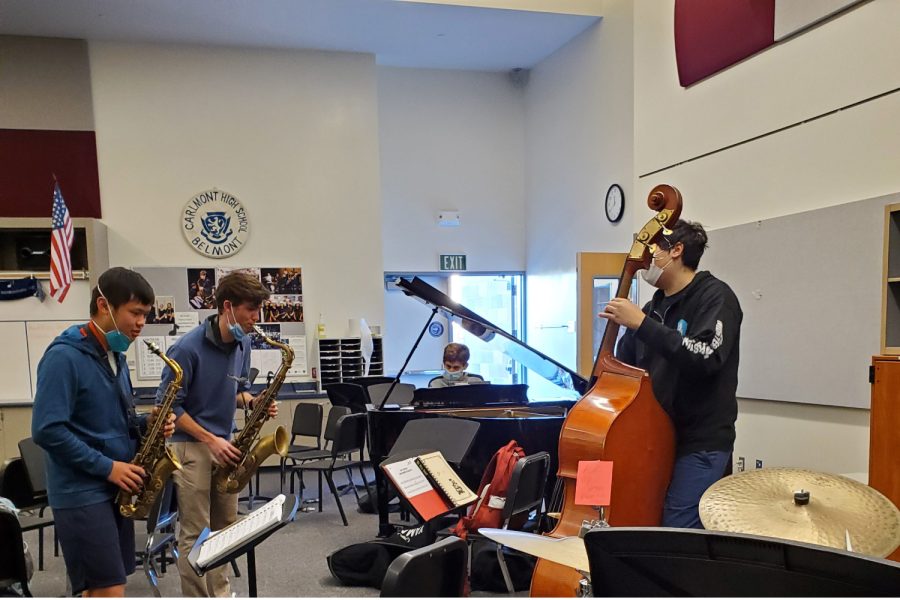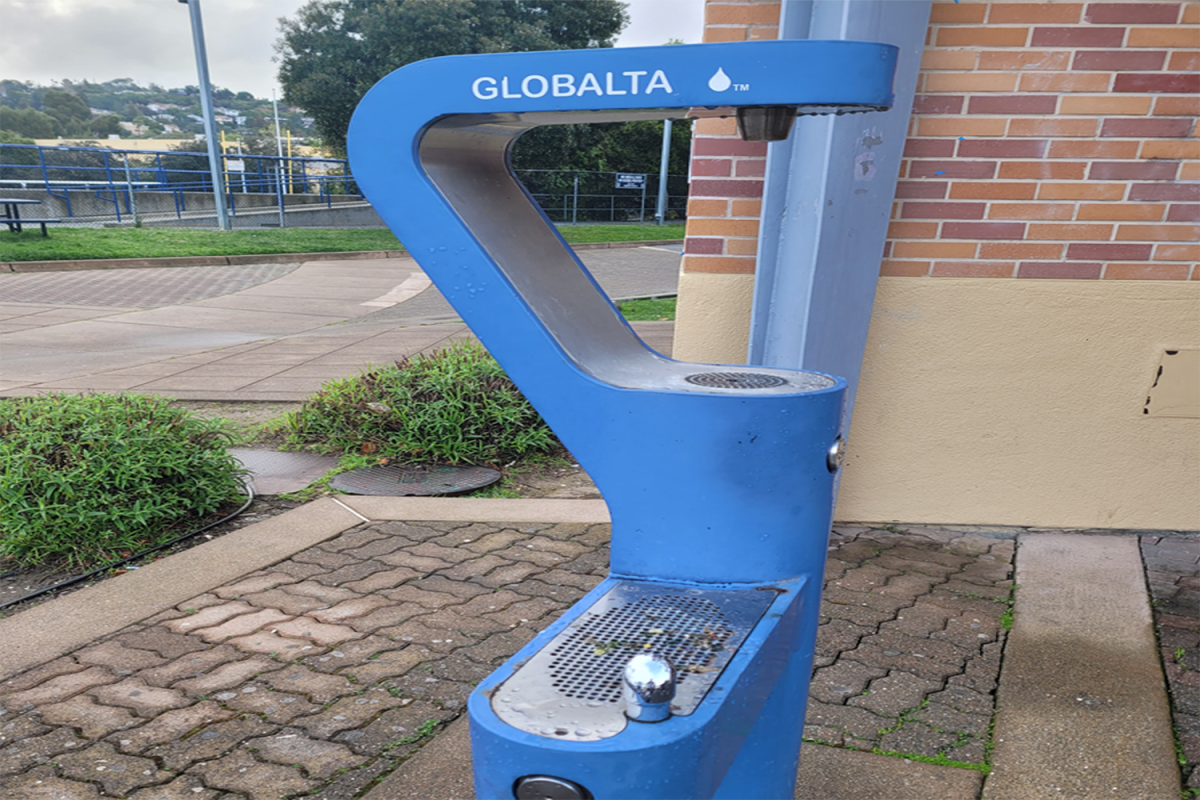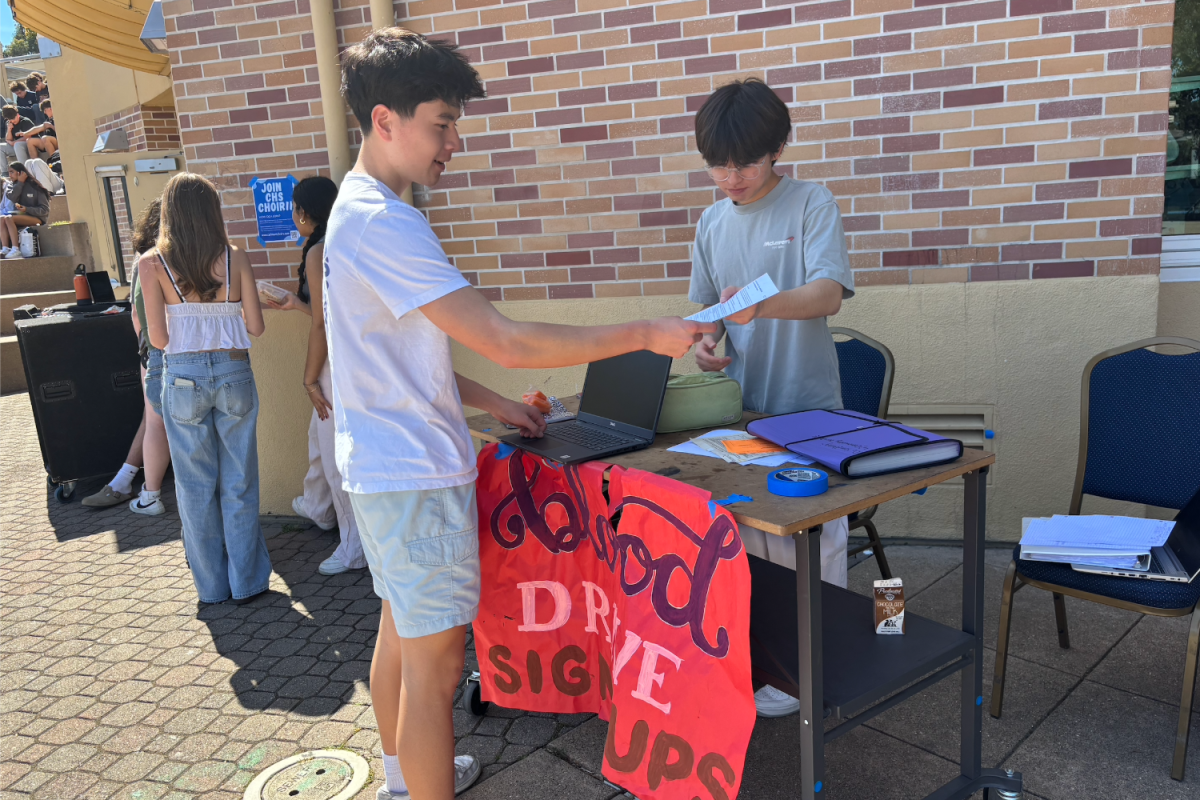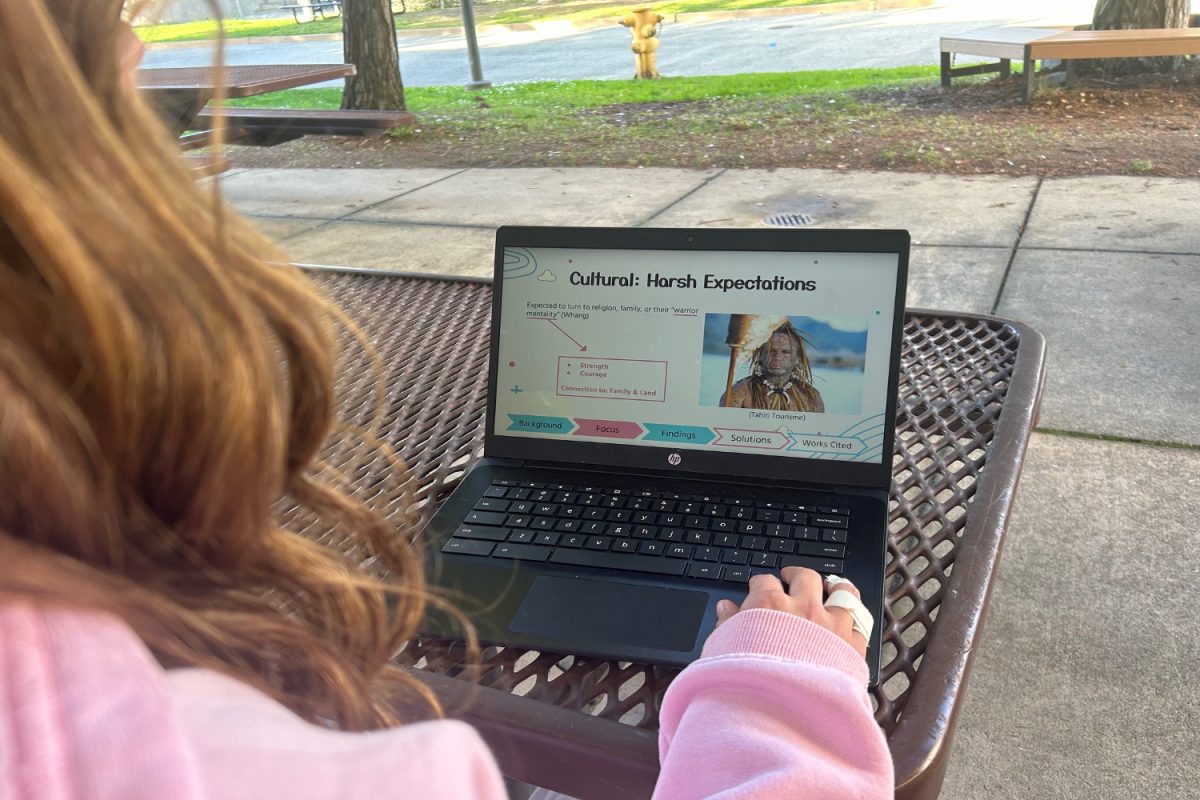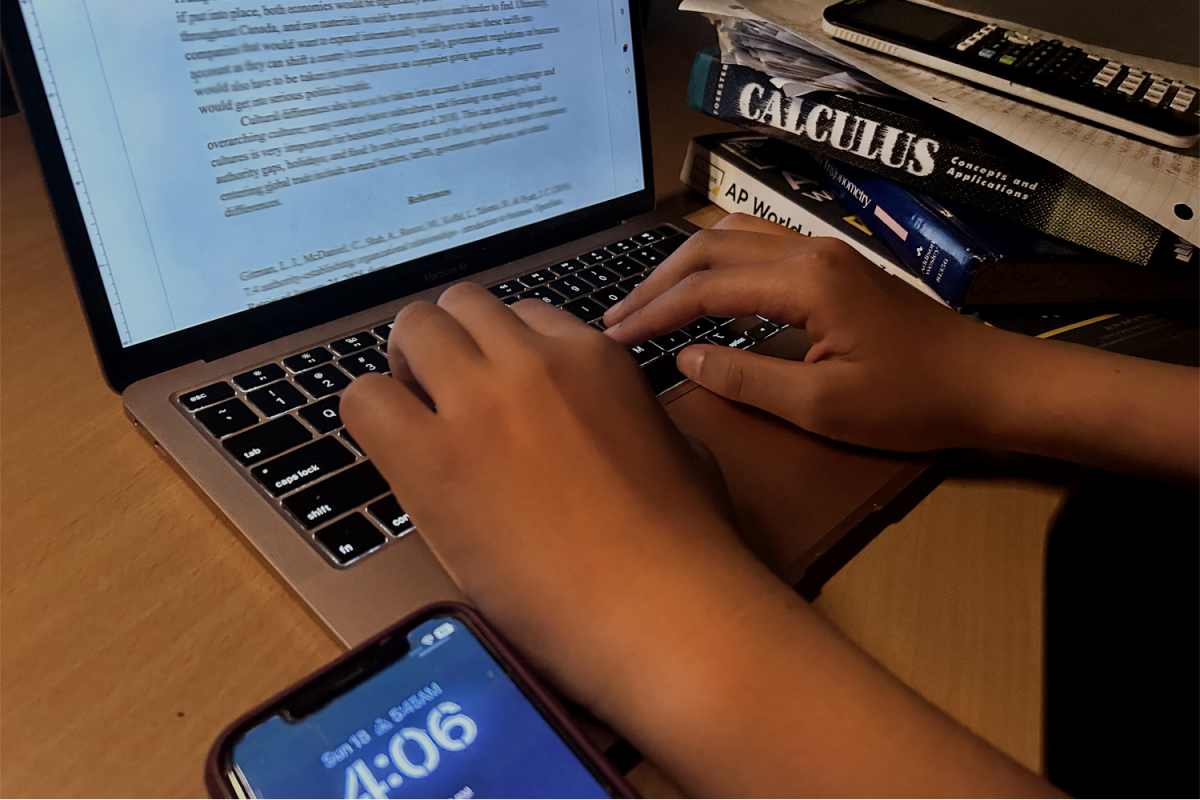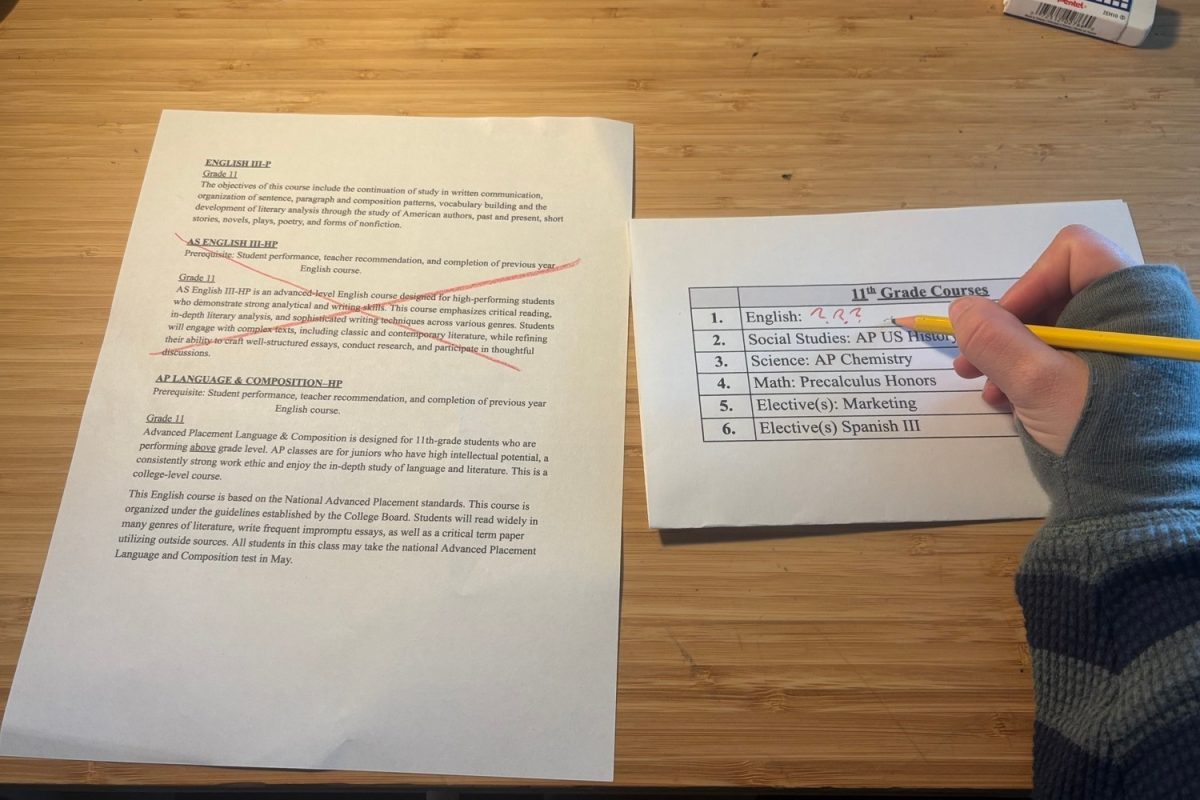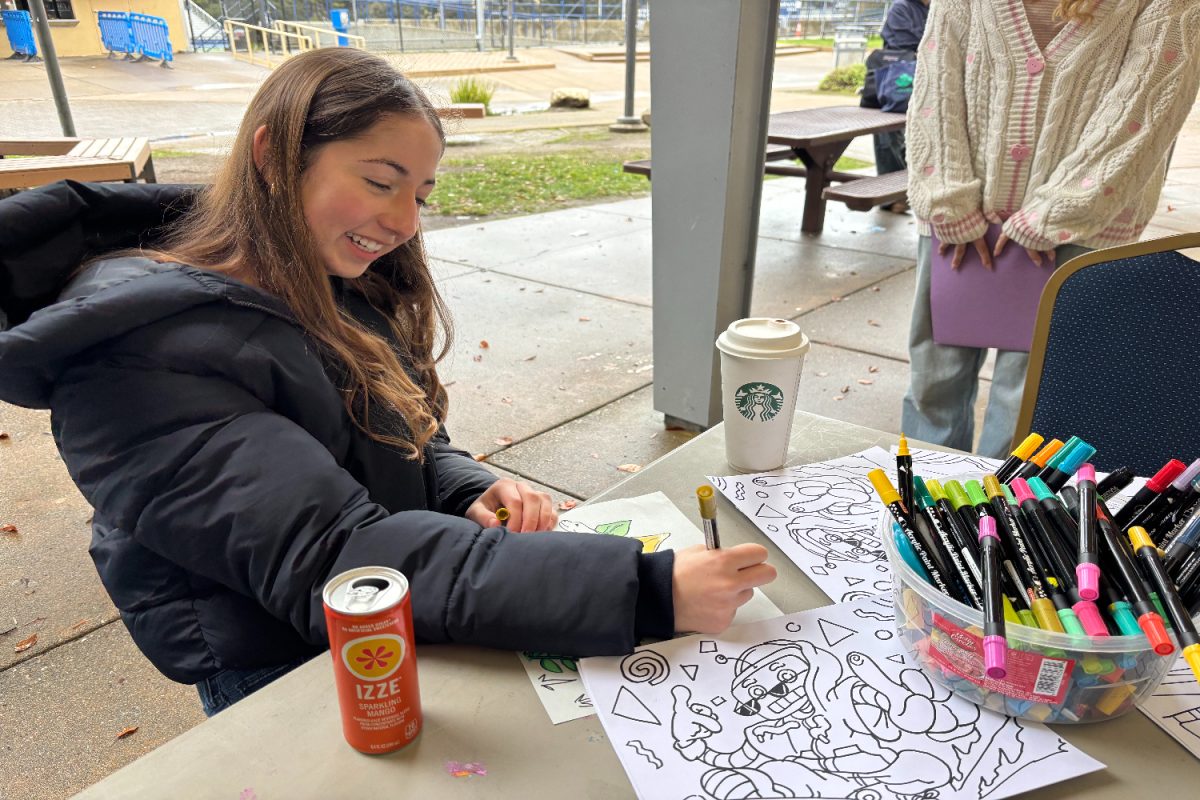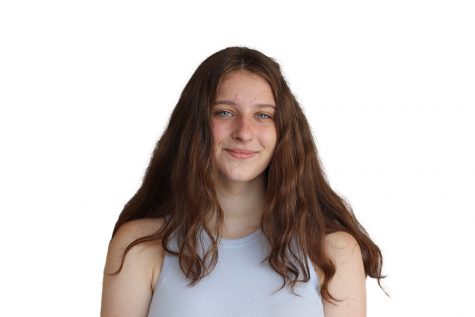Carlmont jazz is an award-winning program that provides a space for musical teenagers to apply and expand upon their talents. This program has been known as one of the best high school jazz ensembles since the 1960s.
Many students begin the jazz adventure in their last year of middle school when auditions are held to get into Carlmont’s jazz ensemble. Once these auditions occur, most of the students will continue in the jazz program for their remaining years at Carlmont. Those who don’t make it freshman year can either audition the next year or enroll in Jazz II, an open-entry class for all music students.
One student, senior Aiden Chan, the drummer in jazz ensemble, made it into jazz band freshman year and still plays with them today. He joined the program because he heard that “the Carlmont jazz program was the highest level of music” at the school.
“I thought I would shoot for it so I can be the best musician that I can be,” Chan said.
Through Carlmont jazz, Chan has made many connections with his fellow students. As a percussionist, he has particularly close friendships with the other rhythm section members, and he even plays in some outside gigs with them. Right now, he and a couple of other band members are in a combo outside of school, Nathan’s Fearless Five, that is planning on performing at local restaurants soon.
Chan says that he enjoys being a part of jazz band, and the numerous opportunities to network with others
Another aspect of this program that draws in many students is the band director, Brian Switzer.
Before working at Carlmont, Switzer played gigs with lots of popular musicians, including going on tour with Train in 2012.
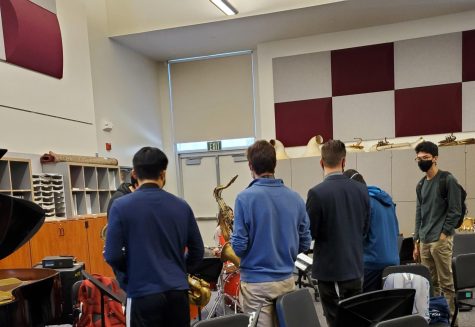
Due to his impressive music career, Switzer has formative experience with the world of music, particularly jazz, which is why he is so passionate about teaching Carlmont jazz students.
A major contributor to the greatness of the jazz program is the wide range of pieces they have access to. Switzer’s vast connections around the music world allow jazz band to constantly have a variety of pieces.
This abundance of music in their library allows the students to practice sight-reading, which is playing a piece without knowing what it is beforehand. Sight-reading prepares students for playing pieces on the spot, like in a professional setting.
“They’ve sight-read hundreds of pages of music this year. They can sight-read pieces to a level that is comparable to local school performances [after weeks of practice],” Switzer said.
This helps grow bonds in the classroom, where the students and teacher can figure out what they need to improve upon for future sight-reading.
Switzer’s mindset towards the student-teacher relationship is unique.
“Rather than I’m the teacher, it’s like I’m a musician who knows what the pros do and how they got to where they are. And I’m going to show them [the students] those things they [the pros] did, and we are going to go there together,” Switzer said.
The music teacher’s goal is to make the already talented musicians better than ever and cultivate connections between students.
“When everyone is on board with striving for something, it creates a really positive environment. It is what’s contributing to these students having these successes like State Honors Band or scholarships,” Switzer said.
In the past few years, several students have scored full-ride scholarships to the most prestigious music schools in the country. One of them, senior David Jacques and first chair trumpet in jazz ensemble has a scholarship to Berklee College of Music.
Jacques has been with the jazz band all four years in high school, and it has helped him build bonds with the other band members and provided good opportunities for his future.
“Indirectly, it lets me audition for groups outside of school, and that gives you nice connections like the Miles Ahead jazz band,” Jacques said.
Like Jacques, a jazz ensemble guitarist, sophomore Alex Makeev appreciates the connections and experience he receives from participating in the band.
“As far as experience with performing goes, I have gone to restaurants a few times, and in being there, I already felt more comfortable playing because of the experience in the band,” Makeev said. “Also, doing improvisation a lot in rehearsals has definitely helped me improve, and it’s a good skill to have especially for jazz. There are so many times when you show up to a gig, and they’re like, ‘You’re playing this,’ and you’re like, ‘Okay, I’m gonna play that now.'”
Improvisation is an essential part of jazz. It is seen even outside of the music when Switzer spontaneously invites professional musicians in town to instruct the students during class. They provide feedback that bolsters the confidence of many players since they are often impressed with the performance level of the jazz ensemble.
Not only does the music program provide this level of support, but every concert is played on the KCEA radio station in front of a live audience.
“It’s really neat for the students to be doing this thing that they know is going out into the world, but not knowing how far it goes. We become electrified when other people respond in this sort of cosmic way, with the feeling that we’re connecting somehow, somewhere,” Switzer said.

